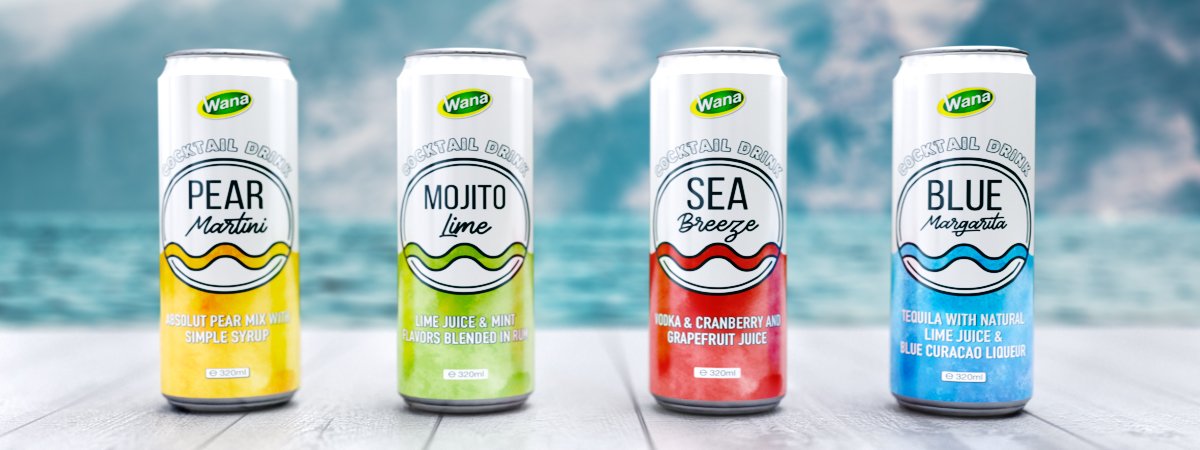Have you noticed how some brands suddenly launch their “own” beverages, like exclusive iced teas or energy drinks, and wondered how they pull it off? The answer lies in white label drinks. These products are quietly revolutionizing the beverage industry, giving businesses a chance to sell drinks without actually producing them. From small cafés to big retail chains, white label drinks are popping up everywhere. But what exactly are they, and how can they benefit businesses? Let’s break it down.
What Are White Label Drinks All About?
White label drinks are beverages crafted by specialized manufacturers but branded and sold under a different company’s name. While the drink itself is made by the manufacturer, the final product is presented as the brand’s own.
Imagine your favorite local coffee shop selling a signature cold brew with its logo on the label. The café didn’t brew it at a large scale themselves; instead, they partnered with a manufacturer that provided the drink, leaving branding and packaging to the café. This concept has made white label drinks incredibly popular across different industries.
How Does the White Label Process Work?
The process starts when a business collaborates with a manufacturer that offers white label services. Manufacturers typically provide a range of pre-developed beverage formulas, such as flavored water, energy drinks, or herbal teas. Businesses can either select a standard formula or request a custom recipe to align with their brand vision.
Once the beverage is ready, the branding magic happens. The company designs labels, chooses packaging styles, and markets the drink under its name. This hassle-free model allows businesses to focus on growing their brand while leaving the complexities of production to the experts.
Why Businesses Love White Label Drinks
The growing popularity of white label drinks isn’t just a trend; it’s a smart business strategy. Here’s why so many companies are jumping on board:
1. Affordable and Efficient
Starting a beverage line from scratch involves huge costs for equipment, ingredients, and staff. White labeling eliminates these expenses, making it a cost-effective way to enter the market.
2. Complete Brand Control
White label drinks offer endless customization. Businesses can design labels, choose eco-friendly packaging, and tailor the product to their target audience. This flexibility helps create a product that feels unique to the brand.
3. Faster Launch Times
Developing a product from the ground up can take years. White labeling skips the development phase, allowing businesses to launch their beverages in record time.
4. Focus on Sales and Marketing
Since production is handled by the manufacturer, businesses can concentrate their efforts on selling and promoting their product. This focus often results in better marketing campaigns and stronger customer connections.
Where Do You See White Label Drinks?
White label drinks are everywhere, though you might not realize it. Here are some common examples:
- Cafés and Coffee Chains: Many coffee shops offer private-label cold brews or specialty teas.
- Nightclubs and Bars: Custom-branded cocktails, craft beers, or mixers often come from white label services.
- Supermarkets and Retail Stores: Look at private-label bottled water, juices, or sodas in grocery aisles—most are white-labeled.
- Health-Focused Brands: Protein shakes, kombuchas, and wellness drinks are often white-label products.
This versatility shows how white label drinks can fit into virtually any market.
What Are the Potential Challenges?
Like any business model, white label drinks have their challenges. Companies must ensure they choose a reliable manufacturer to avoid quality inconsistencies. Additionally, businesses have limited control over production timelines, which could impact supply if demand spikes unexpectedly.
That said, most of these issues can be addressed by working closely with reputable manufacturers and setting clear expectations.
Should You Try White Label Drinks for Your Business?
If you’ve been considering expanding your product range, white label drinks are worth exploring. They let you introduce unique, branded beverages without dealing with production complexities. However, to succeed, you’ll need a solid marketing plan and a focus on delivering quality to your customers. White label drinks are more than a passing trend—they’re reshaping the way businesses approach product development. Whether you run a small café or manage a larger brand, white labeling can unlock opportunities you may not have considered before. Why not explore this model and see how it can help your business grow?



